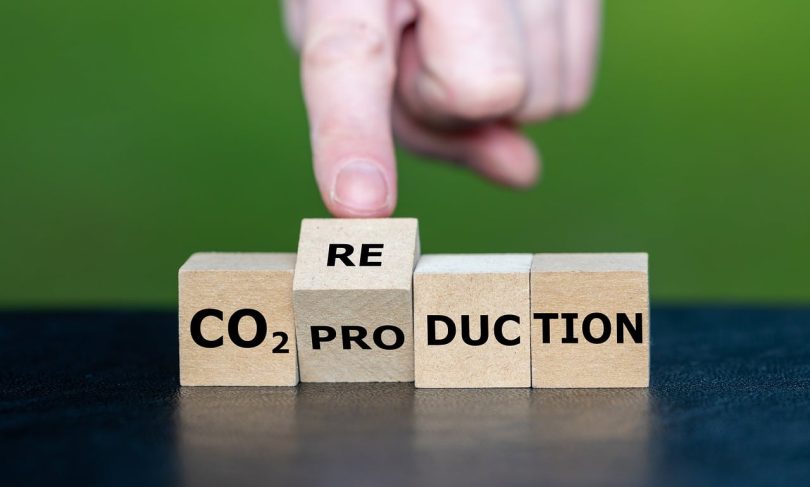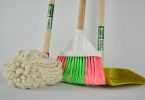Imagine a world where your cleaning routine is like a symphony of sustainability. As you clean your home, you not only rid it of dirt and grime, but also reduce your carbon footprint and contribute to a healthier planet.
You may be surprised to learn that making your own cleaning products can make this vision a reality. By using simple household ingredients, you can create effective and eco-friendly cleaning solutions that are not only better for the environment but also safer for your family.
But how exactly do you go about making these DIY cleaning products? Stay tuned to find out as we unravel the secrets to lowering your carbon footprint through the power of homemade cleaning solutions.
Benefits of DIY Cleaning Products
Using DIY cleaning products offers several benefits that can make your cleaning routine easier and more environmentally friendly.
First and foremost, making your own cleaning products allows you to have complete control over the ingredients used. Unlike commercial cleaning products that often contain harsh chemicals and toxins, DIY cleaning products can be made using natural and non-toxic ingredients such as vinegar, baking soda, and essential oils. This not only ensures the safety of your family and pets but also reduces the harmful impact on the environment.
Another benefit of DIY cleaning products is that they’re cost-effective. Most of the ingredients used in DIY cleaning solutions are inexpensive and readily available in your pantry or local grocery store. By making your own cleaning products, you can save money and reduce your household expenses.
Additionally, DIY cleaning products are versatile and can be used for various cleaning tasks. From removing stains and odors to disinfecting surfaces, these homemade solutions are effective in tackling different cleaning challenges. This eliminates the need for multiple cleaning products, simplifying your cleaning routine.
Lastly, by opting for DIY cleaning products, you contribute to reducing plastic waste. Commercial cleaning products often come in plastic bottles that end up in landfills or oceans, polluting the environment. Making your own cleaning products allows you to reuse and recycle containers, minimizing your carbon footprint.
Common Household Ingredients for DIY Cleaning
To create your own DIY cleaning products, you’ll need some common household ingredients. These ingredients are readily available and can be found in your kitchen pantry or laundry room.
One of the most versatile ingredients is white vinegar. It’s a natural disinfectant and can be used to clean windows, countertops, and even remove odors from fabrics.
Baking soda is another essential ingredient that can be used for multiple cleaning purposes. It acts as a gentle abrasive and can be used to scrub surfaces like sinks and bathtubs. Additionally, it can be combined with vinegar to create a powerful cleaning paste.
Lemon juice is also a great ingredient to have on hand. Its acidic properties make it effective in removing stains and cutting through grease. It can be used to clean stainless steel appliances and freshen up cutting boards.
Lastly, hydrogen peroxide is a powerful disinfectant that can be used to sanitize surfaces like bathroom tiles and kitchen countertops.
These common household ingredients aren’t only effective in cleaning but also environmentally friendly, making them a great choice for DIY cleaning products.
Homemade All-Purpose Cleaners
Make your own homemade all-purpose cleaners using common household ingredients for a cost-effective and eco-friendly cleaning solution. Instead of spending money on store-bought cleaners that often contain harmful chemicals, you can easily create your own cleaning products using ingredients you already have at home.
One simple recipe for an all-purpose cleaner involves mixing equal parts water and white vinegar in a spray bottle. This solution is effective for removing dirt, grime, and grease from various surfaces, including countertops, floors, and windows. Vinegar is a natural disinfectant and deodorizer, making it a great choice for cleaning and freshening up your home.
Another option is to combine baking soda and water to create a paste. This paste can be used to scrub away tough stains on sinks, tubs, and tile grout. Baking soda is a gentle abrasive that helps to remove dirt and grime without scratching surfaces.
You can also add a few drops of essential oils, such as lemon or lavender, to your homemade cleaners for a pleasant scent. Essential oils not only provide a refreshing aroma but also have antimicrobial properties.
DIY Window and Glass Cleaners
Are you tired of streaks and smudges on your windows and glass surfaces? Well, fret no more! With a few simple ingredients, you can make your own DIY window and glass cleaners that will leave your surfaces sparkling clean.
One effective recipe for a homemade window cleaner involves combining equal parts white vinegar and distilled water. Vinegar is a natural disinfectant and helps remove dirt and grime from glass surfaces. To use this solution, simply mix the ingredients in a spray bottle, spray onto the glass, and wipe clean with a microfiber cloth or newspaper. The acidity of the vinegar helps eliminate streaks, leaving your windows crystal clear.
Another option is to create a mixture using rubbing alcohol and water. This solution is particularly effective at removing fingerprints and grease from glass surfaces. Mix one part rubbing alcohol with three parts water in a spray bottle, and spray onto the glass. Wipe clean with a lint-free cloth or paper towel for a streak-free shine.
Natural Floor and Surface Cleaners
If you’re looking to keep your floors and surfaces clean without resorting to chemical-laden products, why not try some natural alternatives? Using natural floor and surface cleaners not only helps reduce your carbon footprint but also ensures a healthier and safer environment for you and your family.
One effective natural floor cleaner is vinegar. Mix equal parts of vinegar and water in a spray bottle and use it to wipe down your floors. The acidity of vinegar helps remove dirt and grime while leaving a streak-free shine.
Another option is a mixture of baking soda and water. Create a paste using these two ingredients and apply it to stubborn stains on surfaces. Let it sit for a few minutes before scrubbing it off with a sponge or cloth.
For wooden floors or surfaces, you can make a natural cleaner by combining olive oil and lemon juice. Mix one part olive oil with one part lemon juice and apply it to the wood using a soft cloth. This mixture not only cleans but also moisturizes and adds a natural shine to the wood.
These natural alternatives aren’t only effective but also cost-effective. By using them, you can keep your floors and surfaces clean while taking a step towards a more eco-friendly lifestyle.
Eco-Friendly Bathroom Cleaning Solutions
To clean your bathroom in an eco-friendly way, try using natural cleaning solutions instead of chemical-laden products. Not only are these solutions better for the environment, but they’re also safer for you and your family.
One simple and effective solution is a mixture of equal parts white vinegar and water. This can be used to clean and disinfect the toilet, sink, and shower. Vinegar is a natural disinfectant and is effective at killing bacteria and germs.
Another natural solution is baking soda. It can be used as a gentle abrasive to clean the bathtub and tiles. Simply sprinkle it on a damp sponge and scrub away. For tough stains, you can make a paste by mixing baking soda with a little water. Apply the paste to the stain, let it sit for a few minutes, and then scrub it away.
Lemon juice is another great natural cleaner. Its acidity makes it effective at removing hard water stains and soap scum. Simply cut a lemon in half and rub it directly on the stain. Rinse with water and voila! Your bathroom will be clean and fresh, without the use of harsh chemicals.
Homemade Kitchen Cleaners
Now let’s move on to creating your own homemade kitchen cleaners, which aren’t only better for the environment but also safer for you and your loved ones.
Cleaning your kitchen can be a breeze with simple ingredients you probably already have at home. For an all-purpose cleaner, mix equal parts white vinegar and water in a spray bottle. This solution is great for countertops, appliances, and even floors.
To tackle tough grease and stains, try making a natural degreaser by combining baking soda and water to form a paste. Apply it to surfaces like stovetops and oven racks, let it sit for a few minutes, and then scrub away the grime.
If you’re dealing with a smelly garbage disposal, throw in some lemon peels and ice cubes. Run the disposal and enjoy a fresh and clean smell.
Lastly, to clean your microwave, fill a microwave-safe bowl with water and a few slices of lemon. Heat it for a few minutes until the water boils and let the steam do its magic. Wipe down the inside with a cloth, and voila!
Your homemade kitchen cleaners are ready to tackle any mess while keeping your kitchen safe and eco-friendly.
DIY Laundry Detergent and Stain Removers
Creating your own DIY laundry detergent and stain removers can save you money and give you peace of mind knowing exactly what’s in your cleaning products. Making your own laundry detergent is a simple and cost-effective way to reduce your carbon footprint. All you need is a few basic ingredients such as washing soda, borax, and grated soap. Mix them together, and voila! You have a homemade laundry detergent that’s just as effective as store-bought ones, but without the harmful chemicals.
Not only is making your own laundry detergent good for the environment, but it’s also gentle on your clothes. The ingredients used in homemade detergents are less harsh compared to commercial ones, which can help extend the life of your fabrics.
Moreover, DIY stain removers can be easily made with ingredients like hydrogen peroxide, baking soda, and dish soap. These natural ingredients are effective in removing tough stains without damaging your clothes.
Tips for Storing and Using DIY Cleaning Products
When it comes to storing and using your DIY cleaning products, there are a few helpful tips to keep in mind.
First, it’s important to label your homemade cleaning solutions clearly. This will prevent any confusion and ensure that you use the right product for the right task.
Additionally, store your DIY cleaning products in a cool, dry place away from direct sunlight. This will help to maintain their effectiveness and prolong their shelf life. Remember to keep them out of reach of children and pets, as some ingredients may be harmful if ingested.
When using your DIY cleaning products, always test them on a small, inconspicuous area first to check for any adverse reactions. This is especially important when using them on delicate surfaces or fabrics. Be sure to follow the instructions for dilution ratios and application methods to achieve the best results. Remember to wear gloves and protective eyewear when handling concentrated solutions to avoid any skin or eye irritation.
Lastly, if you have any leftover cleaning solutions, dispose of them properly according to your local regulations. Avoid pouring them down the drain or toilet, as they may contain harmful chemicals that can harm the environment. Instead, consider using them for other cleaning tasks or give them to friends or family who can make use of them.







